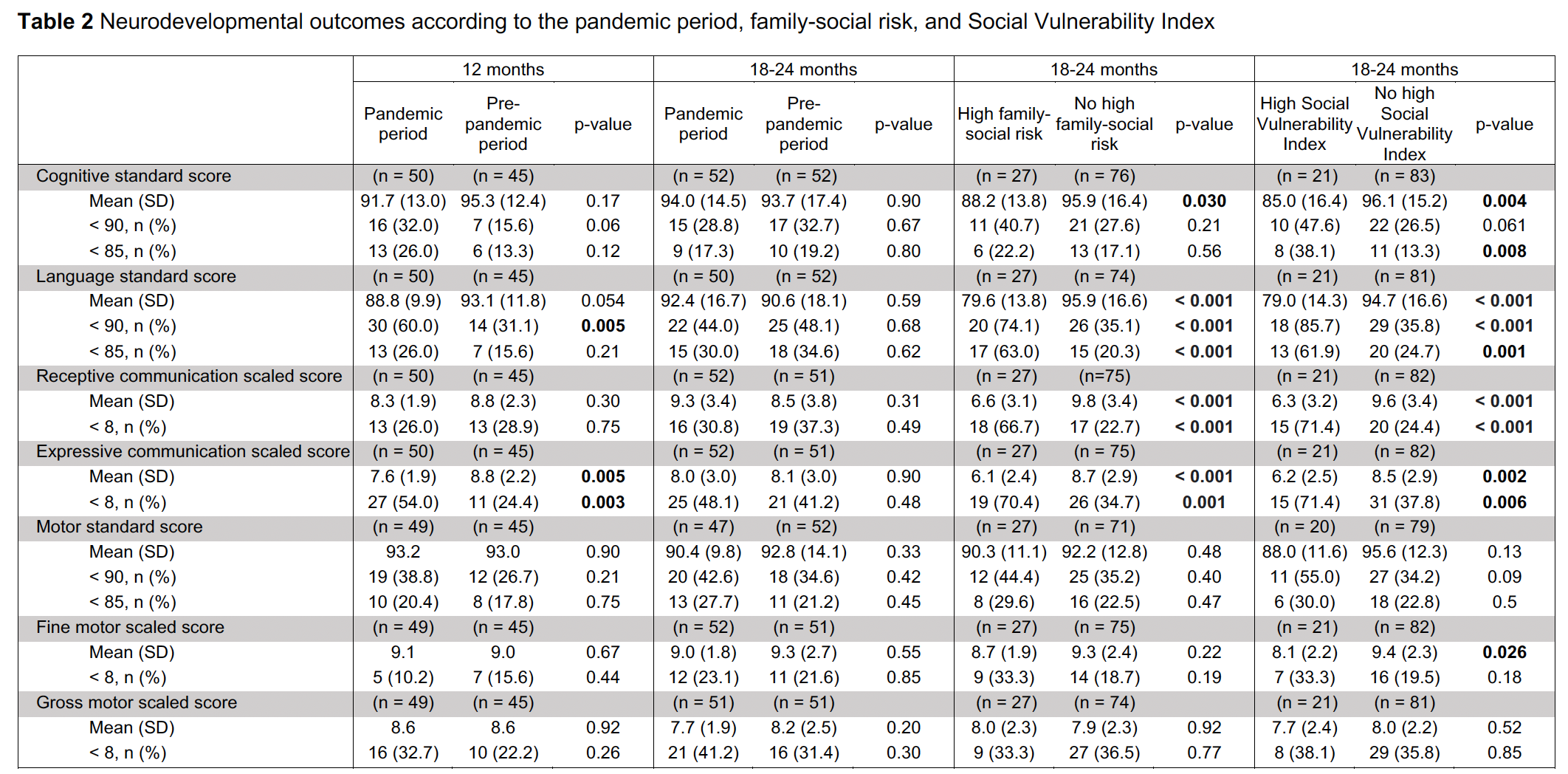Neonatology
Session: Neonatal Follow-up 1
495 - Relationships Between Social Factors and Neurodevelopmental Outcomes of Infants Born Very Preterm During and Before the COVID-19 Pandemic
Saturday, May 4, 2024
3:30 PM - 6:00 PM ET
Poster Number: 495
Publication Number: 495.1110
Publication Number: 495.1110

Gabriel Cote-Corriveau, MD MSc
Pediatrician
CHU Sainte-Justine
Montreal, Quebec, Canada
Presenting Author(s)
Background: Infants born very preterm (VP) may have been especially vulnerable to the repercussions of the pandemic, as social factors can influence neurodevelopment. Yet, the impact of the pandemic and social factors on developmental outcomes of VP infants remains insufficiently understood.
Objective: To assess the neurodevelopmental outcomes of VP infants during vs before the COVID-19 pandemic, and examine the potential implications of family and community-level social factors.
Design/Methods: We conducted a retrospective review of a cohort of VP infants born
Results: Obstetrical, neonatal, and social characteristics were similar between infants born during (n =64) vs before (n = 69) the pandemic (Table 1). Compared with VP infants born before, infants born during the pandemic had lower language scores (88.8 vs 93.1; p = 0.054) and expressive communication scores (7.6 vs 8.8; p = 0.005) at 12 months, but differences faded by 18-24 months (Table 2). Regardless of the pandemic period, high family-social risk and SVI were associated with lower cognitive and language scores at 18-24 months. Associations were strongest for language scores, whether comparing the family-social risk (79.6 vs 95.9; p < 0.001) or SVI (79.0 vs 94.7; p < 0.001). The decrease in cognitive and language scores relative to family-social risk and SVI did not appear to differ during vs before the pandemic (Figure 1).
Conclusion(s): In this retrospective study, VP children born during the COVID-19 pandemic experience significantly lower expressive communication skills at 12 months; this effects attenuates by 18-24 months corrected age. High family and community-level social vulnerability correlates with lower cognitive and language scores. Further studies are needed to better understand the transient and/or persistent effects of the pandemic on developmental trajectories of VP infants.
.png)

.png)
